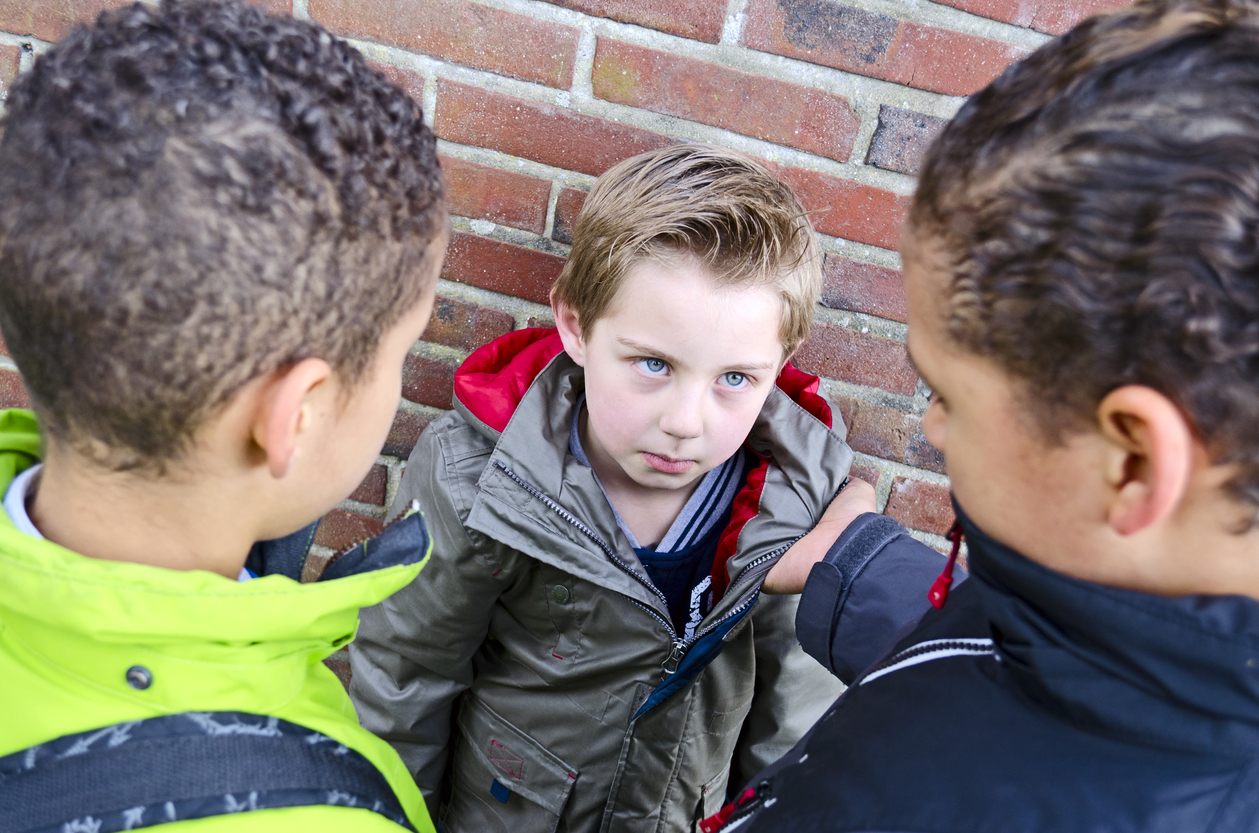Do you know if you’d recognize the signs a child is bullying others?
We all worry that our kids might someday fall victim to bullying…and with good reason. Bullying impacts one in three American school kids in grades 6-10.
But while we worry about someone being mean to our kid, an even more unsettling question parents need to ask is, “what if my child is the one being mean?”
With this much bullying in schools, it’s entirely possible your child will participate at some point.
That’s why it’s crucial to be able to recognize the signs. Bullying prevention starts at home.
Why Kids Bully
Bullying is almost always about power. Kids who bully other kids are looking to assert their dominance.
As a result, bullying tends to come from one of two places; an internalized feeling of superiority over another individual or group, or internalized wounds or feelings of insecurity that cause a bully to lash out and displace those feelings onto others.
Either way, there is an underlying root cause that parents can address to nip the bullying behavior in the bud.
If you see signs a child is bullying others, start with two questions.
The first question is “what?”, as in what behaviors are my child demonstrating that might lead me to believe he or she is behaving like a bully? You want to be able to point out the exact actions you’ve witnessed or heard about.
The second question is “why?” Why is my child acting out? What is the root cause of the behavior? Once you understand why your child is mistreating others, you can work with them to resolve the underlying issue and prevent continued bullying in the future.
Here are some warning signs a child is bullying others. Keep in mind these patterns are not proof, they are just a guide. You will need to investigate further to determine if bullying is actually taking place and if you need to intervene.
Signs A Child Is Bullying Others
Displays Aggressive Behavior:
Either emotional and/or physical. Is your child trying to be dominant? Are you seeing a lot of aggression or anger? Is he/she yelling at adults? Hitting younger siblings?
Gets Easily Frustrated:
Do they pitch a fit when things don’t go their way? Are temper tantrums common? Do they lash out when they don’t like an outcome?
Exclusiveness:
Will your child only hang out with certain kids? Do they refer to certain classmates as “losers” or “weirdos”? Do they talk disparagingly or make jokes about the “fat kids” or the “geeks”?
The marginalization of other groups is one of the signs a child is bullying others.
Preoccupied With Popularity:
Are they overly concerned about being well liked? Do they want to win or come out ahead at all costs?
Bullying is about power, and kids that will do or say anything to achieve higher social status may resort to bullying.
Lacks Empathy:
Is your child unable to see how their actions or words affect others? Can they imagine what it feels like to be in another person’s shoes? Or are they only concerned with their own feelings?
Blames Others:
When your child scores badly on a test, do they blame the teacher? Do they blame siblings or other kids when they get in a fight?
Do they think they’re better than others? or refuse to accept responsibility for their actions?
Teases, Taunts or Manipulates:
Does your child tease or taunt other kids? Do they try and manipulate siblings or friends into doing what they want? Are they overly pushy? Do you hear them engaging in name calling?
Has “Mean” Friends:
Does your child hang around with a rough crowd? Do you see their friends bullying other kids? Do you hear them gossiping or spreading rumors about other children with their friends?
Kids pick up traits from the kids they hang out with and peer pressure from their friend group is a very real thing, so keep an eye on the behavior of your child’s friends as well.
Spends a Lot Of Time Online:
Cyber bullying is a big problem these days, and bullies tend to spend more time online than their non-bullying peers. Sometime kids feel it’s okay to be cruel online because those comments “don’t count”.
Monitor your kids online activity to be sure they are not harassing others (or being harassed themselves). You may need to check their online history if you see signs a child is bullying others.
Observes Family Members Excluding or Hurting Others:
Kids mimic what they see at home. Bullying behaviors displayed by parents or other siblings might be imitated. If your child witnesses this type of behavior on a regular basis, it may incite them to do the same.
Now that you are armed with some bullying facts, you are in a better position to determine if you child is behaving like a bully. If you see signs a child is bullying others, get involved!
Check with the school to see if there are any anti bullying programs in place. Talk to your child and find out what it going on in their world.
Bullying comes from unresolved feelings. Help your kids work through their emotions to stop the behavior. You can do this!
If you are seeing signs a child is bullying others and you want to do more, check out How Can I Stop Bullying?
Or maybe you want to know the Signs Your Child Is Being Bullied so you know what to watch out for.
SHARE the possible signs a child is bullying others on Facebook and Pinterest by clicking the buttons below.












